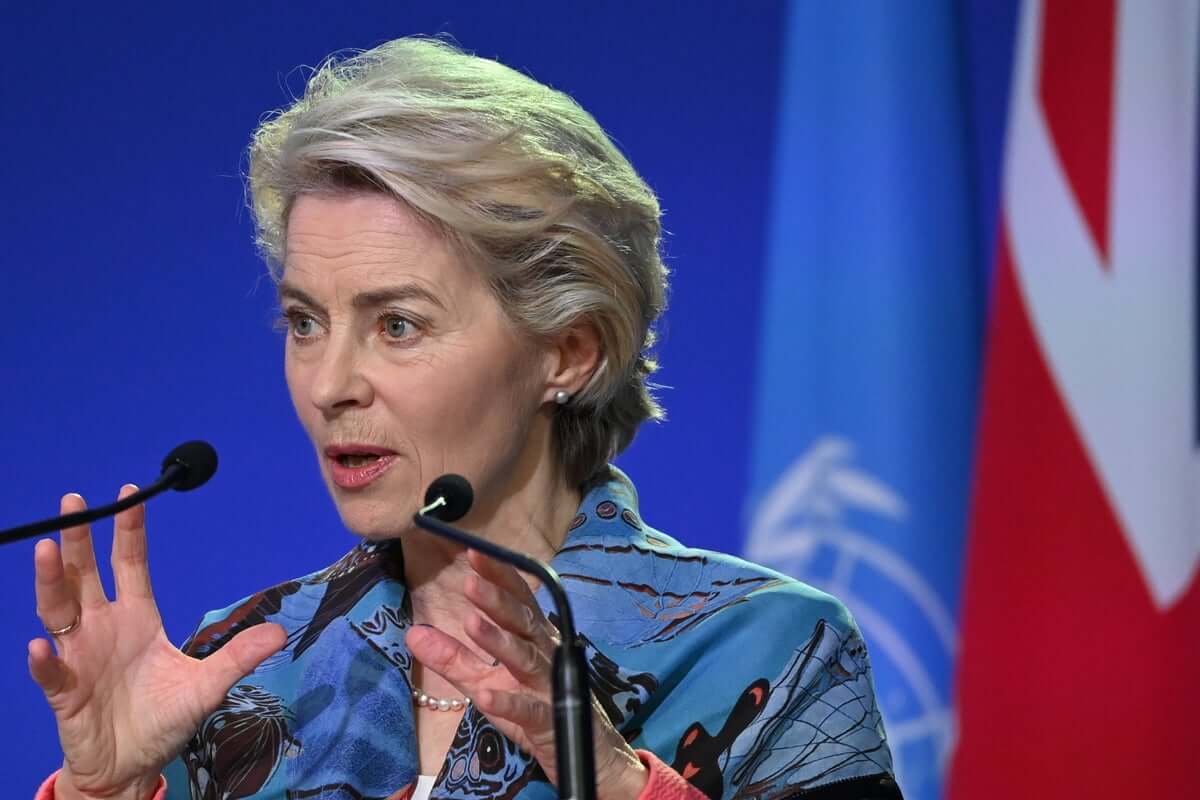On Monday, the European Union (EU) announced the fourth round of sanctions against Russia by revoking its “most-favoured-nation” status and withdrawing significant benefits that it enjoyed as a member of the World Trade Organization (WTO).
France, which currently holds the rotating presidency of the EU, said, “The bloc in consultation with our international partners, has approved a fourth package of sanctions targeting individuals and entities involved in the aggression against Ukraine, as well as several sectors of the Russian economy.”
In a statement, European Commission President Ursula von der Leyen took aim at Russia’s “ruthless” invasion Ukraine—wherein it has targeted civilians, schools, apartments, and hospitals—and accused Moscow of not seriously engaging in negotiations for a diplomatic solution or honouring its commitment to opening up humanitarian corridors.
I welcome the fast adoption by EU Member States of the 4th package of sanctions against Russia.
— Ursula von der Leyen (@vonderleyen) March 15, 2022
This will further cripple Putin’s ability to finance this unjustified war.
The EU and its partners will keep up the pressure on the Kremlin until it stops the invasion of Ukraine.
Von der Leyen said that the latest punitive measures were taken in “lockstep” with the G7 countries—Canada, France, Germany, Italy, Japan, the United Kingdom (UK), and the United States (US). Previous coordinated sanctions barred Russian banks from the SWIFT international payment system and led to dozens of international companies suspending operations in Russia and a massive depreciation of the ruble.
Under the fourth round of sanctions, “Russian companies will no longer receive privileged treatment in our economies,” said von der Leyen. The bloc also suspended the examination of Belarus’ application for WTO membership.
As of now, we stop treating Russia as a Most-Favoured-Nation at @wto.
— Valdis Dombrovskis (@VDombrovskis) March 15, 2022
This step coupled with our ever-wider sanctions directly target Putin & his regime.
This is a strong political signal from EU, @G7 & partners: Russia is becoming a pariah nation.
👉https://t.co/5z13mVIvzL pic.twitter.com/KMEdy5bKf2
Additionally, the bloc said it would revoke Russia’s membership in prominent multilateral organisations such as the World Bank and International Monetary Fund (IMF) to ensure that Moscow can no longer “obtain financing, loans, or any other benefits from these institutions.” The bloc will continue to target Russian oligarchs and elites, including Chelsea Football Club owner Roman Abramovich, who is believed to be a close associate of Putin. In this regard, the statement mentioned that the Finance, Justice, and Home Affairs Ministers of the G7 countries will meet next week to coordinate a task force set up to focus on “Putin’s cronies.”
The Union said it will ensure that Russia and its elites don’t use cryptocurrency assets to bypass Western sanctions and also decided to block the export of any luxury goods to Russia. “Those who sustain Putin’s war machine should no longer be able to enjoy their lavish lifestyle while bombs fall on innocent people in Ukraine,” stated the press release.
The #EU approves a fourth package of sanctions against #Russia, including:
— NEXTA (@nexta_tv) March 15, 2022
📍 A ban on luxury goods to Russia;
📍 a ban on imports of Russian steel and iron to the EU;
1/2
Furthermore, the bloc restricted the import of critical goods from Russia’s iron and steel sectors, thereby depriving it of billions in export revenues. Lastly, the EU proposed a ban on new European investments across Russia’s energy sector to avoid strengthening the bloc’s energy dependency on Russia. “This ban will cover all investments, technology transfers, financial services, etcetera, for energy exploration and production – and thus have a big impact on Putin,” von der Leyen said.
Alongside these news sanctions, the bloc reaffirmed support for the people of Ukraine and announced $329 million to support Ukraine’s economy.
“You have heard me say this before and I firmly repeat it: Ukraine will prevail,” von der Leyen declared.

